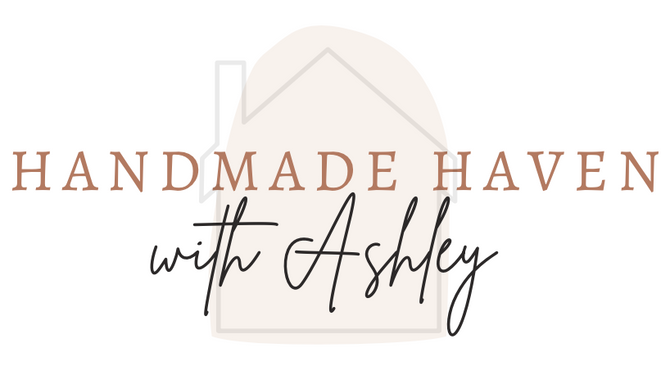"Who knew a DIY Leather Bench could look so trendy"
I am seeing leather benches everywhere, so they must be the hot new thing right now, so I figured I'd jump on the bandwagon and create my own DIY Leather Bench.
"This post is sponsored by the Home Depot" I wanted to take it a step further and give it a little pizzaz, so I decided to do a woven technique on the bench top, so now I have this cool DIY Leather Woven Bench and I'm so excited to finally share it with you guys.
I wanted to take it a step further and give it a little pizzaz, so I decided to do a woven technique on the bench top, so now I have this cool DIY Leather Woven Bench and I'm so excited to finally share it with you guys. The best part is, I am bringing you the full tutorial and build video today so you can recreate your own. I mean this project is just too good to keep to myself. So let's get to it!.
The best part is, I am bringing you the full tutorial and build video today so you can recreate your own. I mean this project is just too good to keep to myself. So let's get to it!.
There are some affiliate links in this post, meaning I get a small commission if you purchase through these links, at no cost to you. Click Here to read my full disclosure.
Dimensions

Materiels/Tools
Bench
7 - 2x2s@ 6ft (Select Pine)
2 1/2" Pocket Hole Screws
Bench Cut List
4 - 2x2s @ 48 1/4"
12 - 2x2s @ 13 1/2"
Bench Top
1 - Project Panel (16x48)
PolyFoam ( 2x27x76)
1 Yard - Black Fabric
2 Yards - “Leather” Fabric (I used vinyl-Spot Cinnamon Whisper)
Craft Scissors
With a project like this, I know it's much easier to follow along with a video, so I made sure to catch this process on camera to help make it easier on you guys. Enjoy!
Step 1: Assemble the Base
I used my handy dandy Kreg jig to create all of the pocket holes, along with my RIDGID Drill Driver, Industry Leading with 1,300 in.-lbs. of Torque and it comes along with an Impact driver. The better part is when you by the Drill and Impact Driver Kit, you get two tools free, know who wouldn't want that?
To help assemble the base, I used my Kreg right angle clamp and Ridgid Drill and Impact Driver. The Kreg Right Angle clamp really comes in handy while building because it sort of serves as a second hand.
 The Ridgid Impact Driver is the industry's leading with 2,400 in.-lbs. of torque; and it features three speeds and three specialty modes for versatility. These two tools made making this base a breeze.
The Ridgid Impact Driver is the industry's leading with 2,400 in.-lbs. of torque; and it features three speeds and three specialty modes for versatility. These two tools made making this base a breeze.
 Begin assembling the base by attaching the (48 1/4") 2x2s to the (13 1/2") 2x2s using a Kreg Jig on a 1 1/2" setting, with 2 1/2" 2 1/2" pocket hole screws to attach along with wood glue. Use your Kreg Right Angle Clamp to assist.
Begin assembling the base by attaching the (48 1/4") 2x2s to the (13 1/2") 2x2s using a Kreg Jig on a 1 1/2" setting, with 2 1/2" 2 1/2" pocket hole screws to attach along with wood glue. Use your Kreg Right Angle Clamp to assist.

Attach the two middle (13 1/2") 2x2 to the assembled side using a Kreg Jig on a 1 1/2" setting, with 2 1/2" pocket hole screws to attach along with wood glue. and repeat both steps to create two bench base sides. Use your Kreg Right Angle Clamp to assist.

Attach the two assembled base sides together with the four remaining (13 1/2") 2x2s using a Kreg Jig on a 1 1/2" setting, with 2 1/2" pocket hole screws to attach along with wood glue. Use your Kreg Right Angle Clamp to assist.

The bench base should look something like this when you are complete.

If you want a cleaner look, go back through and fill all of the visible pocket holes in the back. For help on how to easily fill pocket holes, check out my technique here.
Step 2: Create the Leather Woven Bench Top
Cut the polyfill down to the size of the project panel. You should cut about a 1/2" around the project panel using craft scissors or tool of your choice. Once the polyfill is cut, take your spray adhesive and spray the foam all over one side and attach it to the wooden project panel piece.
Once the polyfill is cut, take your spray adhesive and spray the foam all over one side and attach it to the wooden project panel piece. Cut your black fabric enough to where it slightly covers the bottom of the wooden project panel piece and secure it down with your staple gun.
Cut your black fabric enough to where it slightly covers the bottom of the wooden project panel piece and secure it down with your staple gun.
 Begin drawing lines on the back of your leather to create long strips. I used a 2x2 to make sure the lines were even and drew the lines with a sharpie.
Begin drawing lines on the back of your leather to create long strips. I used a 2x2 to make sure the lines were even and drew the lines with a sharpie. Once your lines are all drawn, begin cutting the strips one by one using your craft scissors
Once your lines are all drawn, begin cutting the strips one by one using your craft scissors

 One by one, begin attaching each leather strap to the bench top. The straps should go directly beside each other. Do not overlap them because this may mess up the woven pattern, but get them as close as possible.
One by one, begin attaching each leather strap to the bench top. The straps should go directly beside each other. Do not overlap them because this may mess up the woven pattern, but get them as close as possible. Repeat the same exact thing for the other side so you have two sides that are secured down.
Repeat the same exact thing for the other side so you have two sides that are secured down.  Flip the bench over and begin weaving the side leather strips into the longer strips. Now this is the fun part, so have some fun with it. You will weave them all the way to the end.
Flip the bench over and begin weaving the side leather strips into the longer strips. Now this is the fun part, so have some fun with it. You will weave them all the way to the end. Once you're finished weaving, flip the bench over and start securing the loose straps down. When you're securing the straps down, you'lle want to pull on the strip a little to make sure it's nice and snug.
Once you're finished weaving, flip the bench over and start securing the loose straps down. When you're securing the straps down, you'lle want to pull on the strip a little to make sure it's nice and snug.
 Once all of the straps are secured down, remove any excess straps with your craft scissors. I then sat my bench top on my base to make sure it fit, and it definitely did.
Once all of the straps are secured down, remove any excess straps with your craft scissors. I then sat my bench top on my base to make sure it fit, and it definitely did. There may be some people who are fine with their bench like this, with the natural wood, but I wanted my base to be black and WAAA-LAAAH! MY bench was complete and I am so excited with how it turned out.
There may be some people who are fine with their bench like this, with the natural wood, but I wanted my base to be black and WAAA-LAAAH! MY bench was complete and I am so excited with how it turned out.
 I definitely shocked myself with this Woven Leather, I think it looks straight out of a magazine, maybe I'm biased, but it looks darn good.
I definitely shocked myself with this Woven Leather, I think it looks straight out of a magazine, maybe I'm biased, but it looks darn good. I can't way for you guys to try it out yourselves.
I can't way for you guys to try it out yourselves.




